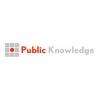The Sept. 11, 2001 attacks, Huricane Katrina and other man-made and natural disasters often reveal flaws in emergency communications systems. Here we attempt to chart the effects of disasters on our telecommunications and media communications systems -- and efforts by policymakers to stregthen these systems.
Emergency Communications

The Strategic Exclusion of Puerto Rico’s Data From the Broadband Deployment Report
The Ajit Pai-led Federal Communications Commission failed to include very important data about the status of broadband availability in the US territories affected by these 2017 disasters in 2019’s Broadband Deployment Report. The FCC specifically said it chose not to report on data from disaster-stricken areas “so that such damage does not artificially deflate progress in deployment and that we can continue to track progress in rehabilitating such networks.” However, the choice not to include disaster-stricken areas is indeed that -- a choice.
In 2012, Congress created the First Responder Network Authority (FirstNet) to develop, build and operate a nationwide, broadband network that equips first responders to save lives and protect U.S. communities. FirstNet has made significant strides in delivering on this mandate. Today, nearly 7,250 agencies utilize more than 600,000 connections on the FirstNet network. In addition, over 100 devices with public safety-focused features and functions are approved and certified for use on the FirstNet network.

FCC Activates Disaster Information Reporting for Tropical Storm Barry
The Federal Communications Commission has announced the activation of the Disaster Information Reporting System (DIRS) in response to Tropical Storm Barry. DIRS is a voluntary, web-based system that communications providers, including wireless, wireline, broadcast, cable and Voice over Internet Protocol providers, can use to report communications infrastructure status and situational awareness information during times of crisis. Communications providers are reminded that for providers that participate in DIRS, the separate Network Outage Reporting System (NORS) obligations are suspended for

FCC Announces Tentative Agenda for August 2019 Open Meeting
Federal Communications Commission Chairman Ajit Pai announced that the items below are tentatively on the agenda for the Open Commission Meeting scheduled for Aug 1, 2019:
Establishing the Rural Digital Opportunity Fund – The FCC will consider a Notice of Proposed Rulemaking (NPRM) that would propose to adopt a two-phase reverse auction framework for the Rural Digital Opportunity Fund, committing $20.4 billion in high-cost universal service support to bring high-speed broadband service to millions of unserved Americans.
Verification of Mobile Wireless Service in Puerto Rico Post Hurricane Maria
The Universal Service Administrative Company used airborne drones to measure mobile wireless coverage in Puerto Rico post-Hurricane Maria. USAC’s vendor conducted a total of 20 drone tests in Puerto Rico; one of which was overlapped by a drive test in order to compare relative performance. The remaining 19 drone tests were conducted in impassible areas. Within Puerto Rico, the test evidence suggests that drones are capable of quickly surveying smaller areas, but may not be as useful for surveying larger areas in a cost-effective manner at this time.

Chairman Pai Announces Action To Help Americans Reach 911 And Be Quickly Located By First Responders
Federal Communications Commission Chairman Ajit Pai announced that the FCC will vote at its Aug meeting on rules to help ensure that people who call 911 from multi-line telephone systems which commonly serve hotels, office buildings, and college campuses—can reach 911 and be quickly located by first responders. The Chairman has circulated draft rules that would implement two recently enacted laws to improve emergency calling, the Kari’s Law Act of 2017 and RAY BAUM’S Act of 2018, and extend 911 location requirements to additional calling platforms.
A 911 outage hit AT&T customers around the US
A 911 outage prevented AT&T customers from calling emergency services for hours during the morning of July 2, officials in multiple states said. Officials in TX, MN, WI, WA, and several other states reported issues. The company soon said its fixed the problem. “Earlier this morning some wireless customers may have been unable to connect to 911,” an AT&T spokesperson said. “This has been resolved and we apologize to anyone who was affected.”
The webinar will include an overview of the EAS and instructions on how to register and file in the EAS Test Reporting System (ETRS).

Right to Connect: A Media-Policy Roadmap for Presidential Candidates
A platform of recommended media-and-tech policies for all presidential candidates. Over the summer of 2019, Free Press Action will send the platform to each of the presidential candidates. Free Press Action will also generate a scorecard rating each candidate’s positions relative to Right to Connect’s recommendations. What is the platform asking candidates to do?
Agenda
9:00 am Welcome Zenji Nakazawa, Public Safety and Consumer Protection Advisor to Chairman Pai
9:15 am Panel 1: Regulatory Framework for Multilingual Alert Distribution Over the EAS and WEA Systems

